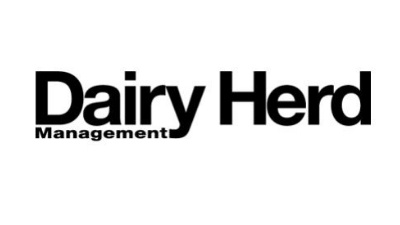News and Information Related to Sustainability in Dairy
A collection of articles relevant to dairies and their environmental impact.

Pathways to Dairy Net Zero Initiative on Climate Change Announced
The Pathways to Dairy Net Zero initiative is being developed by the Global Dairy Platform (GDP), a group consisting of dairy companies and dairy associations, to accelerate climate change action throughout the global dairy sector.

Is Precision Manure Tech Worth It?
Grant funding in Vermont is helping farmers adopt cutting-edge precision manure sensors.

Thune, Brown Introduce Bipartisan Bill to Increase Biogas Production, Promote Investment in Rural America
U.S. Sens. John Thune (R-S.D.) and Sherrod Brown (D-Ohio) introduced bipartisan legislation to encourage investment in biodigester and nutrient recovery systems, while establishing a market for farmers who already have a surplus of waste materials that can be used for biogas production. Thune and Brown’s bill, the Agricultural Environmental Stewardship Act, will help expand the market for renewable biogas by providing a 30 percent investment tax credit to help offset the upfront costs associated with building biodigester systems. U.S. Reps. Ron Kind (D-Wis.) and Tom Reed (R-N.Y.) introduced companion legislation in the House of Representatives.

The Northeast’s largest renewable natural gas digester begins operations in Salisbury VT
The largest anaerobic digester in the Northeast began full-scale production of renewable natural gas on Wednesday on the Goodrich Family Farm in Salisbury, just south of Middlebury Vermont.

Can We Turn Sustainability Into a Market?
The dairy industry has been making steps toward more environmentally sustainable production well before it was a buzzword among consumers and with food marketers. While that has led to a number of important advances, the guests on the July 21, Hoard’s Dairyman Dairy Livestream explained that environmental sustainability should also benefit a farm’s bottom line.

The Top Two Benefits of Low Disturbance Manure Application
Research has shown that LDMA conserves more nitrogen and decreases nutrient concentrations in runoff compared to surface and broadcast applications. This allows nutrients within the manure to be better absorbed within the soil.

$10M Grant Funds Study of Dairys Carbon Footprint
A $10 million grant aims to help the U.S. dairy industry become at least carbon neutral while supporting farmer livelihoods — and providing important insight for New York state, which ranks fourth in milk production nationwide.

Project to quantify US dairy farming’s GHG footprint for feed help farmers get paid for conservation practices
A new project is looking to provide scientific support for accurate measurement of US dairy’s GHG footprint in relation to feed production and also set the stage for new market opportunities related to carbon, water quality and soil health.

Siblings Go Big on Manure Digester
Chase and Danielle Goodrich didn’t just want another revenue source for their dairy.

Cow manure methane may soon fuel cars, heat homes in Arizona
A new energy facility southwest of Phoenix scheduled to open in December will capture methane from cow manure and reuse the biogas as renewable natural fuel.
